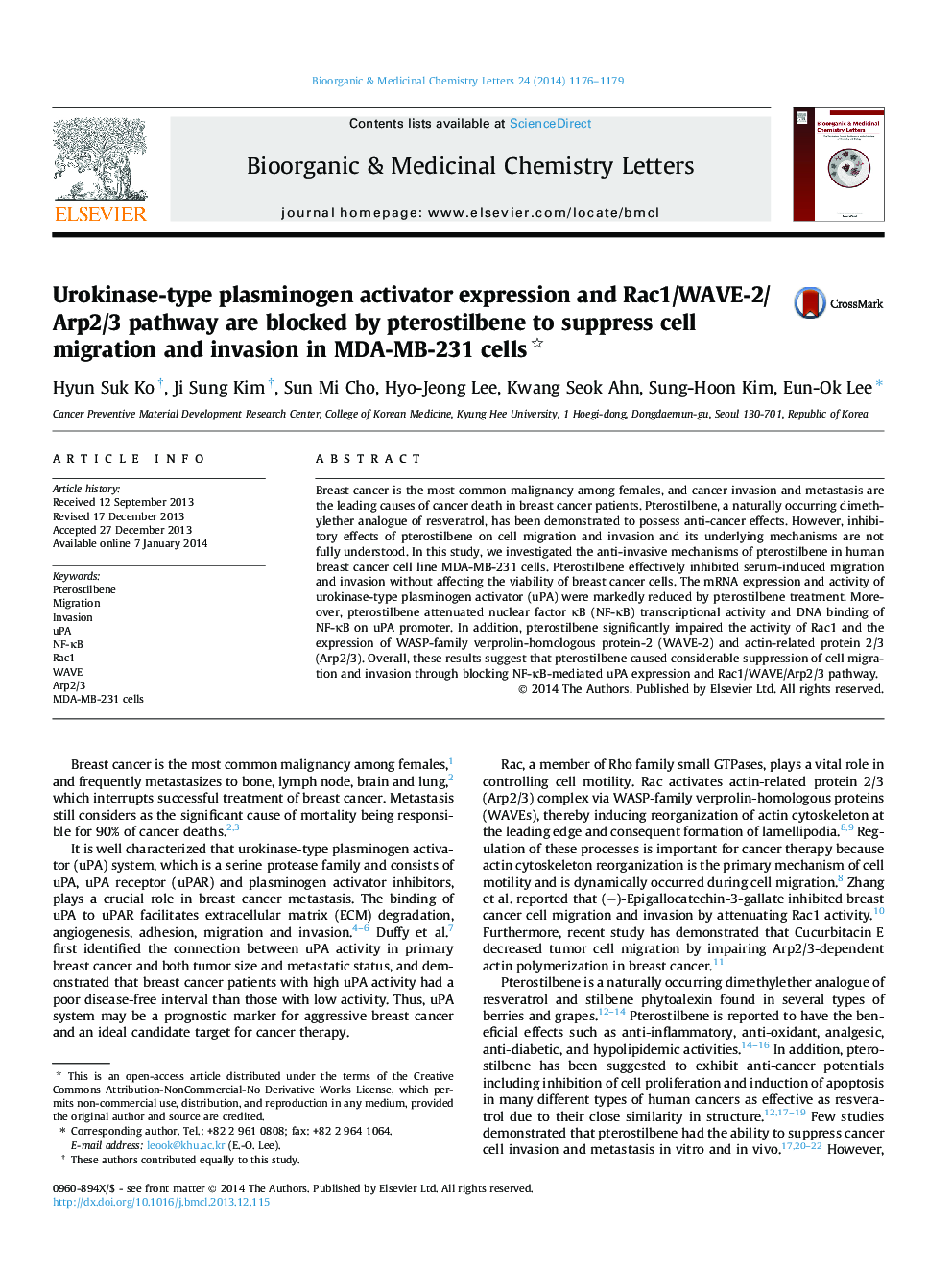| Article ID | Journal | Published Year | Pages | File Type |
|---|---|---|---|---|
| 10587123 | Bioorganic & Medicinal Chemistry Letters | 2014 | 4 Pages |
Abstract
Breast cancer is the most common malignancy among females, and cancer invasion and metastasis are the leading causes of cancer death in breast cancer patients. Pterostilbene, a naturally occurring dimethylether analogue of resveratrol, has been demonstrated to possess anti-cancer effects. However, inhibitory effects of pterostilbene on cell migration and invasion and its underlying mechanisms are not fully understood. In this study, we investigated the anti-invasive mechanisms of pterostilbene in human breast cancer cell line MDA-MB-231 cells. Pterostilbene effectively inhibited serum-induced migration and invasion without affecting the viability of breast cancer cells. The mRNA expression and activity of urokinase-type plasminogen activator (uPA) were markedly reduced by pterostilbene treatment. Moreover, pterostilbene attenuated nuclear factor κB (NF-κB) transcriptional activity and DNA binding of NF-κB on uPA promoter. In addition, pterostilbene significantly impaired the activity of Rac1 and the expression of WASP-family verprolin-homologous protein-2 (WAVE-2) and actin-related protein 2/3 (Arp2/3). Overall, these results suggest that pterostilbene caused considerable suppression of cell migration and invasion through blocking NF-κB-mediated uPA expression and Rac1/WAVE/Arp2/3 pathway.
Related Topics
Physical Sciences and Engineering
Chemistry
Organic Chemistry
Authors
Hyun Suk Ko, Ji Sung Kim, Sun Mi Cho, Hyo-Jeong Lee, Kwang Seok Ahn, Sung-Hoon Kim, Eun-Ok Lee,
